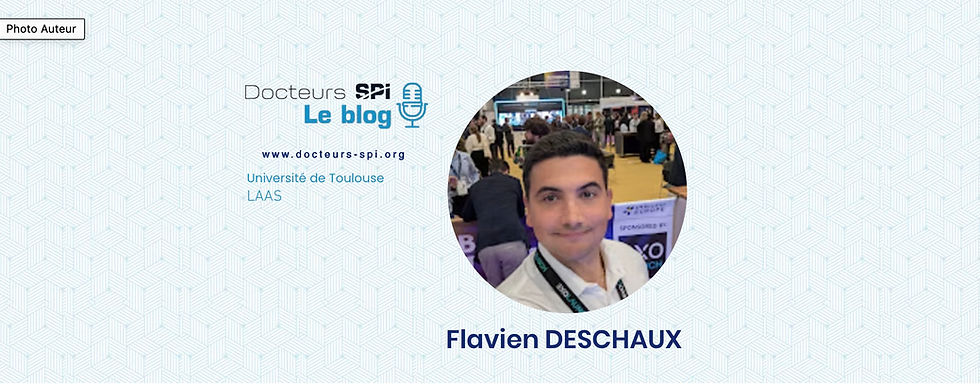To PhD or not to PhD?
- Naveen GOUTHAM

- 29 mars 2024
- 3 min de lecture
Dernière mise à jour : 7 févr. 2025

Merci beaucoup d'avoir accepté l'interview.
Can you introduce yourself?
I come from the only country in the world with an ocean named after it, India. Upon completing my Bachelor’s degree in Mechanical Engineering in India, I moved to Ecole Polytechnique in France in 2017 to pursue a Master’s degree in Renewable Energy. At Ecole Polytechnique, I learned to work in a dynamic, multi-cultural environment. I carried out my Master-1 internship at Laboratoire de Météorologie Dynamique - Polytechnique, where I worked on improving wind speed forecasts using machine learning. Later, I carried out my Master-2 internship at Valeo R&D working on an innovative heating system for electric cars. Between 2020 and 2022, I carried out my PhD (CIFRE) with a collaboration between EDF R&D and Laboratoire de Météorologie Dynamique on sub-seasonal predictions of essential climate variables over Europe. Currently, I work as a Research Engineer at EDF R&D.
Why did you decide to pursue a PhD?
While I was carrying out my Master-1 internship at Laboratoire de Météorologie Dynamique, I realized how much I enjoy research. The ability to learn new things, ask new questions and find answers step-by-step was satisfying. I never knew research could be fun! At the end of my Master-1 internship, I was able to write a research article and submit it to a peer-reviewed journal. My supervisor offered me a PhD position with him. My supervisor adapted the subject to meet my interests, and found collaboration and finance from EDF R&D to carry out applied research. I gracefully accepted it.
Can you briefly describe your PhD topic?
My PhD was on sub-seasonal (forecasts beyond 2 weeks and up to 2 months) meteorological predictions for the European energy sector. It involved quantifying the quality of existing forecasting systems, improving the forecasts using statistical methods, and applying the improved forecasts for an energy case. My PhD manuscript is available online.
How did your career evolve after the PhD?
I carried out my PhD (CIFRE) at EDF R&D. My PhD was an exploratory step for EDF R&D on seasonal forecasts. Upon the completion of my PhD, I was offered a permanent position as a Research Engineer in the same team to continue working on the same topic and operationalize the results obtained during my PhD. I took the opportunity to stay at EDF R&D and see to it that the results of my PhD are applied. Currently, in addition to seasonal forecasts, I also work on the resilience of energy systems to climate change. To conclude, having a PhD is equivalent to having experience in project management, and so finding opportunities with a PhD is much easier.
What is your advice to prospective PhD students?
If you want to add new knowledge to the world, discover yourself, learn and master project management, communication, time management, and critical thinking, and acquire new skills, then PhD is for you. For an illustrative guide to understanding PhD, I recommend reading the illustration below (taken from “Matt Might, The Illustrated Guide to a PhD”). Although having an interesting PhD topic is important to stay motivated for at least three years, having a compatible and understanding supervisor takes precedence. If you like the supervisor, you can get easily motivated to learn any new subject. So, choose your supervisor carefully.





Commentaires